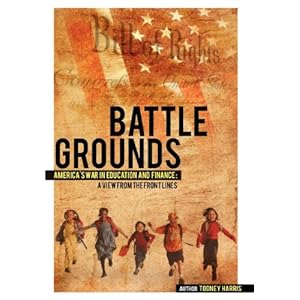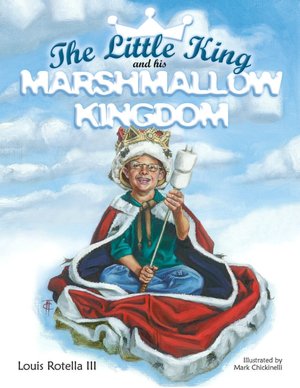*** I received this eBook from Novel Publicity and the author in exchange for an honest and unbiased review.
____________________________________________
Description:
Continuing from where The Gaia Wars left off, Battle for Cascadia chronicles the lengths Warren and his allies must go to in order to stop the ancient, evil Uhlgoth and his horde from capturing and enslaving the spirit of planet Earth.
Review:
As if the first book wasn't awesome enough, the second book in The Gaia Wars series, Battle for Cascadia,
came along and assaulted my imagination with a whole new level of
discovery. In line with the first book, the characters were just as
dynamic, if not more so; Warren has definitely grown, and with that
comes a whole new dimension of his character. Another character that I
enjoyed reading about was Thaddeus, but I was really held captive by
Kenneth G. Bennett's depiction of Uhlgoth and his otherworldly army. I
wasn't expecting to be that unsettled by a set of characters, but I
definitely felt their imposing effects. Also, just like in the first
book, the descriptions of the Cascade region were breathtaking, and the
details were artfully captured on each page. Even as I was reading about
the battle, I was marveling at the pictures being painted in my mind.
The story-line was even more intricate than the first book, but it was
in no way difficult to understand or enjoy, although, I was shocked by
some of the plot twists. Battle for Cascadia
is a fast-paced page turner that took my emotions and imagination on
one heck of a ride. As for the ending, I will eagerly be awaiting the
last book in the trilogy because I hate not knowing what's going to
happen next, especially since... (sorry, no spoilers)! Still waiting for
word on a film version...
Rating: Clean Getaway (5/5)
*** I received these eBooks from Novel Publicity and the author in exchange for an honest and unbiased review.
Read the Chapter 3 excerpt BELOW!
Sneak Peak of The Gaia Wars Chapter 3!!!
Chapter 3
The ground climbed steadily and Warren slowed but didn’t stop. He
knew how to pace himself, and ran lightly over the soft earth, weaving
between the pines.
A plan formed in Warren’s mind. He would make for Pipestone Canyon,
roughly two miles distant. He and his uncle had hiked, skied and
snowshoed there dozens of times, and he knew it well. Perhaps he could
hide among the canyon’s crags, cliffs and massive boulders. Perhaps.
Warren topped a low ridge, entered a clearing, and heard the sudden
rush of brawling Nine Mile Creek, two hundred yards ahead. Born in the
snowy Cascades, the sparkling stream clattered across the meadow. It was
roughly fifteen feet wide here, but shallow, gravel-bottomed and easy
to cross.
Now that he was out of the trees, Warren heard other sounds, too: the
unmistakable baying of dogs, surprisingly close, and the low, steady
whine of ATVs. The Finleys were after him, all right, and they were
getting closer.
For the first time, Warren felt truly afraid. He remembered the rage
on Mr. Finley’s face. Who could guess what the big brute might do? Or
maybe Finley Sr. would simply turn a blind eye as Finley Jr. pulverized
him. Junior was a good thirty pounds heavier than Warren, after all.
Wild thoughts flooded Warren’s mind. Maybe the Finleys would tie him
up and drag him behind their ATVs, or let their dogs tear him to pieces.
He couldn’t guess, and he didn’t want to find out.
Warren had an idea. Instead of running straight across the creek, he
would run in it for a while. His shoes and socks would get soaked, but
perhaps the ploy would confuse the dogs—at least temporarily. It was a
trick he’d read about in numerous adventure stories. Maybe it would
help.
He leapt into the clear, frigid water. It was only about a foot deep
here, where it crossed the flat, open meadow, but shockingly cold. He
sprinted upstream.
Though June meant summer in other parts of the country, it was still
early spring here in the higher elevations of the Clement Valley. It had
snowed heavily all winter, and the meadows only recently had become
snow-free. It had just rained, too, so everything had a fresh, new
quality and the air was crisp and clean. Wildflowers carpeted the creek
banks.
Warren splashed on—the gravel stream bottom giving a bit under each
sloshing footfall. He saw now that the snowmelt and recent rain had
caused the clay soil of the stream’s banks to fracture. Here and there
great slabs of creek edge had fallen into the water. In some spots,
sections of bank teetered, like new islands breaking apart from the
mainland after a catastrophic quake. Ahead, the creek jogged sharply to
the right.
Warren scanned the meadow. In another hundred feet or so, he’d climb
out of the water and run uphill, toward Pipestone Canyon. He sprinted,
following the sharp bend in the stream.
That’s when he saw the skeleton.
It was a human skeleton, no doubt about that, lying face up on the
soft earth. Warren could see at once what had happened: the skeleton had
been buried in the reddish-brown clay of the bank, but a section of
creek edge had fractured and fallen away, freeing the skeleton from its
tomb. It lay there in broad daylight, as neatly and cleanly as if it had
just rolled out of a crypt. Warren stepped forward cautiously and gazed
at the remains in silent wonder.
He would have forgotten about the Finleys, his prank and everything
else—only now that he’d stopped moving he heard the dogs and whining
ATVs once more. Even over the joyful clatter of the creek, the sounds
were unmistakable. The Finleys were coming through the forest, within a
minute or two of the meadow.
Warren stared at the skeleton. He’d been to enough museums and read
enough books to know that it was very old. The bones were light brown
and smooth, like aged ivory. It occurred to Warren they might even be
fossilized.
The skull, arm and leg bones were large, and the hips narrow, so he
guessed he was looking at the remains of a man. The lower jawbone was
missing, as were the bones of the right foot. Otherwise, the skeleton
appeared intact. Warren leaned closer to the skull, but the empty eye
sockets gazing skyward gave him a queer feeling.
He took one last look and …
There was something protruding from the dirt, near the skeleton’s right hip. Warren peered closely.
The “something,” whatever it was, was encrusted with soft clay. It blended with the surrounding soil, and was nearly invisible.
Warren gently traced the object with his fingers, pried some of the
clay away, and understood. It was a pouch: leather, bound at the top
with a fragment of cord.
Warren teased more soil from the object, marveling that the leather
was still supple and intact. Even the design on the face of the pouch—a
fine red spiral—had somehow been preserved inside the clay tomb of the
creek bank.
Carefully, painstakingly, Warren lifted the pouch free from the soil, loosened the cord, and spilled the contents out.
The first artifact to tumble onto the creek bank—into the
sunlight—was a stone spear point. It was about five inches long,
brownish-yellow and lovingly crafted. It was still razor sharp, by the
look of it.
The spear point made Warren gasp. But the object that thudded onto the bank after it stopped his heart.
It was a heavy, flat medallion of gleaming, hammered gold, inset with sparkling blue gems.
Dazzlingly beautiful, the medallion (medallion was the first
word that came to Warren’s mind) could easily have been the centerpiece
of a great king’s crown, or of a royal necklace. The object had seven
equal sides.
A heptagon, Warren thought. It was a term he’d learned in last semester’s math.
Warren’s hand shook as he traced the perimeter of the heptagon with
one finger. The object was about four inches across, and twice as thick
as the old silver dollars in his uncle’s coin collection.
In the center of the heptagon was set a perfect circle of highly
polished obsidian. The dazzling blue gems—there were seven of them, as
well—were embedded in the gold and placed evenly about the obsidian
circle. Warren turned the medallion over and saw that the back consisted
of gleaming, hammered gold only.
He lifted the object slowly, reverently. It fit neatly in the palm of
his hand and was so bright that it flashed in the warm morning light.
It was beautiful. It was mesmerizing. It was …
Warren heard sudden, frenzied barking from the forest below and
jumped to his feet. How had they scaled the hill so fast? How long had
he been kneeling beside the skeleton? With a leap up the bank, he was
off once more, bounding across the meadow and toward the sheltering
forest beyond.
Warren had run perhaps fifteen feet when he realized he’d left the
spear point with the skeleton. No time to retrieve it now. By the sound
of it, the Finleys’ dogs would burst into the clearing at any moment. He
had to make it to the trees—had to disappear into the forest—if he was
to have any hope of escaping.























